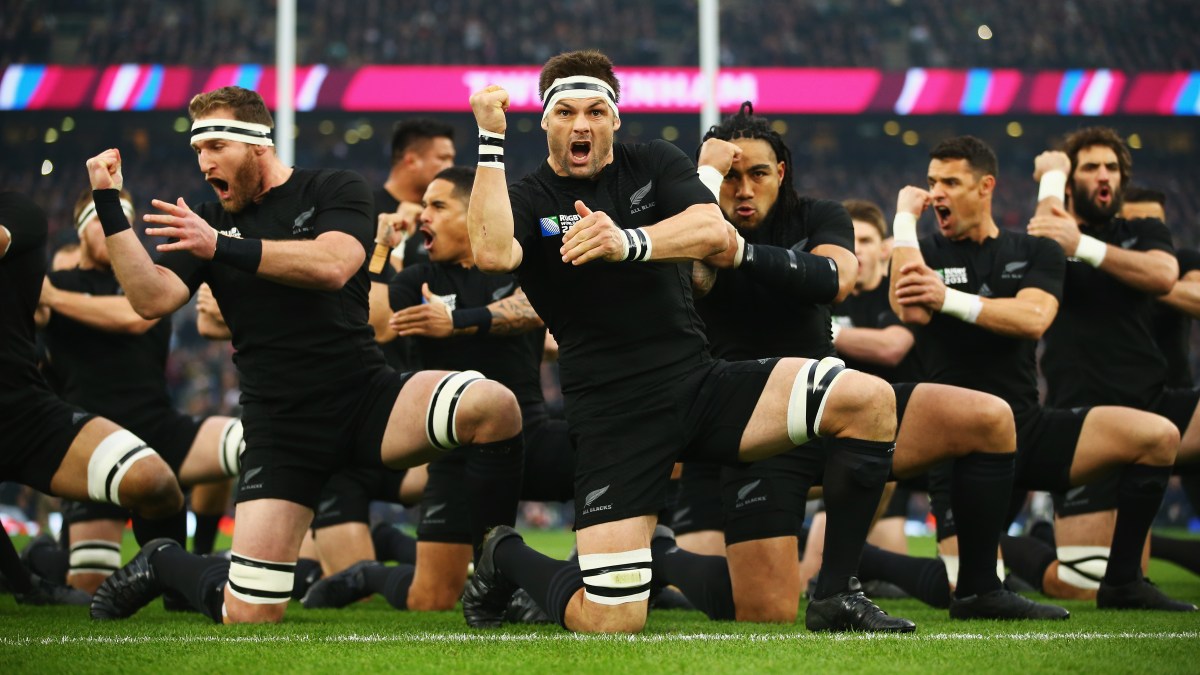Kieran Read calls it “the culmination”: October 31, 2015 — the day the All Blacks capped an unparalleled era of dominance by retaining the World Cup.
Their 34-17 win against Australia was their 56th victory in 61 Tests, stretching back to the start of their triumph at the 2011 World Cup. They were the first team to be crowned global champions twice in a row.
Although, a decade on, the Springboks are plotting a way to make their back-to-back world titles a “three-peat” in Australia in 2027, the feats of those All Blacks still seem staggering.
It was not just the 92 per cent win rate over four years, with only three losses — to England, South Africa and Australia — that was so impressive, it was the all-court manner in which they did it, particularly in the UK at the 2015 World Cup.
The destruction of France, 62-13 in the Cardiff quarter-final, followed by a tight semi-final win, 20-18 over South Africa, before the coup de grâce, walloping the Wallabies in the final at Twickenham on the day that Richie McCaw, Dan Carter, Ma’a Nonu, Conrad Smith and Keven Mealamu retired from international rugby.
Read, the No8 who played on until 2019, had rolled an ankle early in the final but knew his value to the All Blacks, particularly in the lineout. He could not miss the culmination. “It felt right for us to be on that stage,” he says now. “It wasn’t like we deserved to win it, but it felt right for us to be in that position and showcase what we could do. Now you look back and see how good that era was.
“We definitely knew how good we were, but it doesn’t just happen. We were well led and definitely pushed ourselves to the absolute limit. It was in-built in us to be great.”
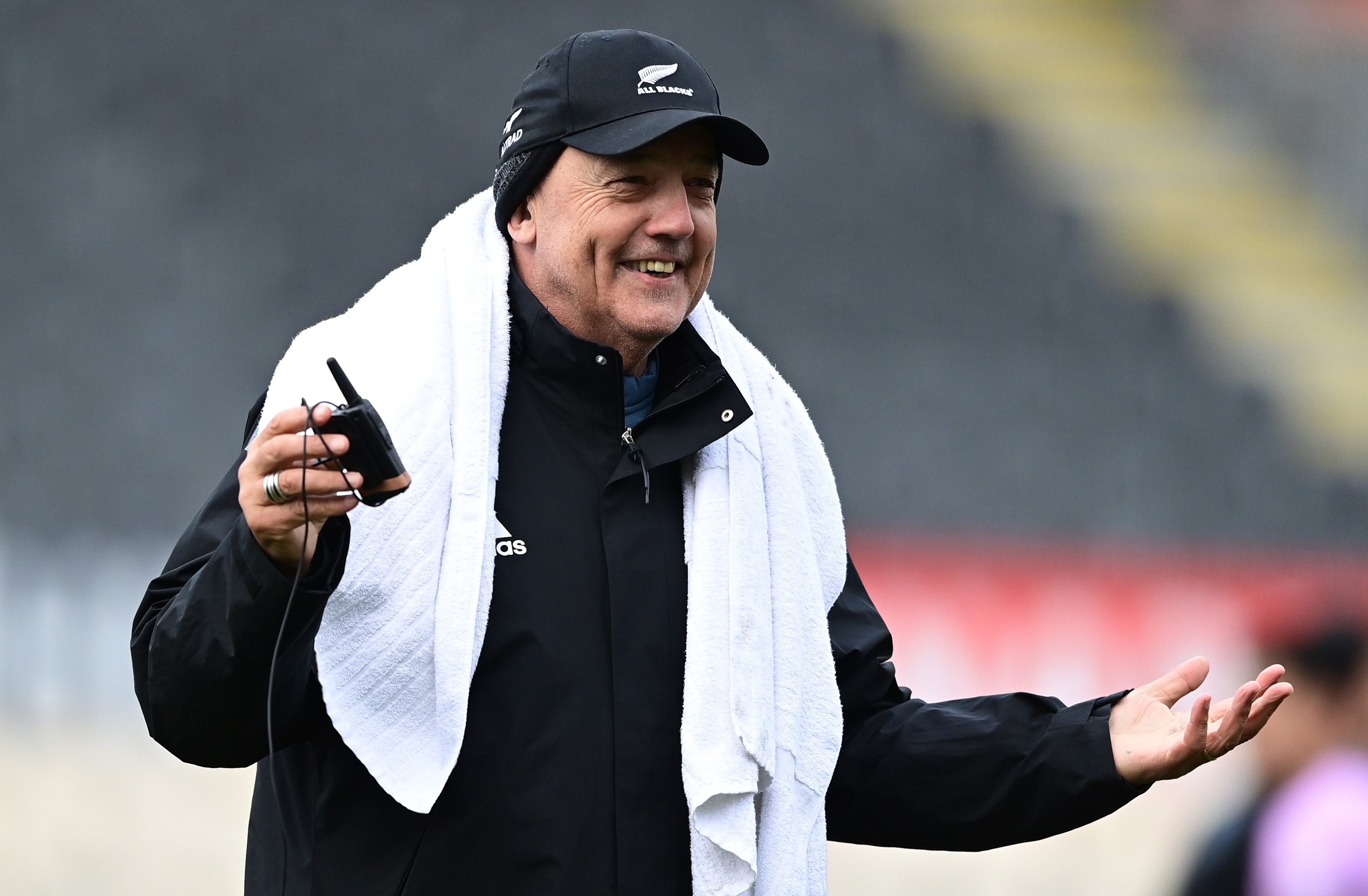
Enoka is credited with building the unshakeable bonds that tied the all-conquering All Blacks together
HANNAH PETERS/GETTY
That was not always the case. As their home World Cup approached in 2011, New Zealand had not won the tournament since 1987, despite often being the best team between World Cups. The 2007 squad was, on paper, one of the All Blacks’ best, but they were knocked out by France in the quarter-finals (don’t mention the forward pass from Damien Traille to Freddie Michalak).
That led to a deep look at the All Blacks’ culture: it was judged too hierarchical, too old-school, with entitled players who drank too much. Along with key staff such as Wayne Smith and Sir Graham Henry, the players led a rejuvenation. Then there was their famous mental-skills coach, Gilbert Enoka, who literally wrote the book on team culture. We will get to “no dickheads”.
Taking your eye off the next game is not something sportspeople often admit to. But the All Blacks knew that, to win it, they had to think deeply about the World Cup and treat it differently. The senior players actively discussed a new approach, years before the 2011 tournament.
“We had a lot of failures going in,” Conrad Smith says. “A whole list of them. We tried to pull them all together. We might have been consistently high performers but we were not peaking at a World Cup, which is what other countries were doing and tipping us over. They would play out of their skins.
“Tournaments are not something the All Blacks often think about — we just think about being the best in every single game. Other countries don’t take that approach. Maybe it’s easier for them to get up for a World Cup. Suddenly they put all their energy into it, whereas we put all our energy into every game. We had to make it different for us as well. I wanted us to be a team that won more World Cups. It bugged me that when I started, Australia and South Africa had won more.”
The “culture” came alongside this. It is something that triggers cynics — all that sweeping of sheds, humility and hakas — but for those in the All Blacks’ group it was fundamental. And they remain quite defensive about its importance. “You’re never guaranteed to win,” Read, now 40, says. “You could look through a lot of All Black teams between 1987 and 2011 and say they were jam-packed with talent and could rock up and win, and they didn’t. 2007 was a great example. When you’ve got the ability of the individuals we had in 2015, then add the cultural stuff on top, it raises the level of collective power.”
Enoka’s much cited “no dickheads” policy was something that grew a life of its own outside the All Blacks’ circle. It is easy now to point to flaws: to say that Dan Carter was charged with drink-driving (2017); or that Aaron Smith was sent home from All Blacks duty for having sex with a woman in a disabled lavatory at Christchurch airport (2016); and to say: “That sounds like ‘dickhead’ behaviour to me — why do those All Blacks think they’re better than everyone else?”
But Enoka’s phrase was never mentioned by the squad. They saw it more as a team-first mantra, not a holier-than-thou statement. “It was part of who we were, rather than a rule,” Read explains. “If you do make a decision that isn’t that way, it doesn’t mean you’re a dickhead, it means you made a mistake, and we move forward.” Team issues were mostly dealt with by the senior players, rather than management.
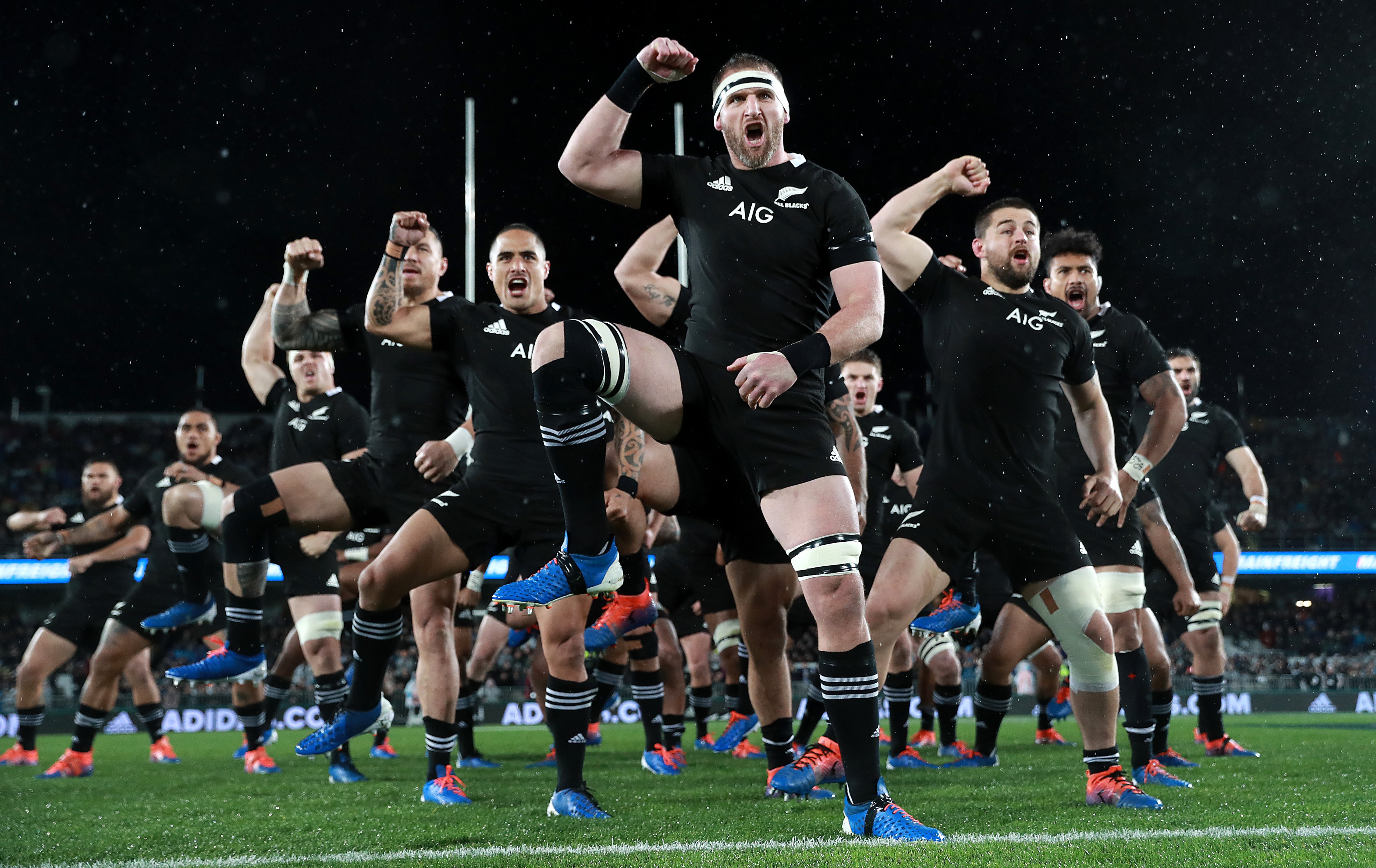
Read took over as captain after McCaw’s retirement
HANNAH PETERS/GETTY
“Yes, things happened,” Read says. “Young men and alcohol mean things do happen. At times there were consequences, but you own it. Post-2011 we looked into who we were as an All Black team, what is our past, our identity?
“New Zealanders are pioneers, a tiny island on the wrong side of the world, who bat above their weight. That is across all sports, business, film and TV. That’s inspiring, and didn’t weigh us down. It was great to be part of that story. When you connect really deeply to that purpose, it goes a long way. You really understand the team drivers, the ‘why’.”
“We would use Maori words, or the names of All Blacks who died in the First World War. It connected us to the All Blacks. It is easy to have a word, but it’s how the leaders bring it out into the day-to-day, so the culture is brought to life. That’s what we had with Gilbert Enoka leading that with us senior players. It truly meant we were bound.”
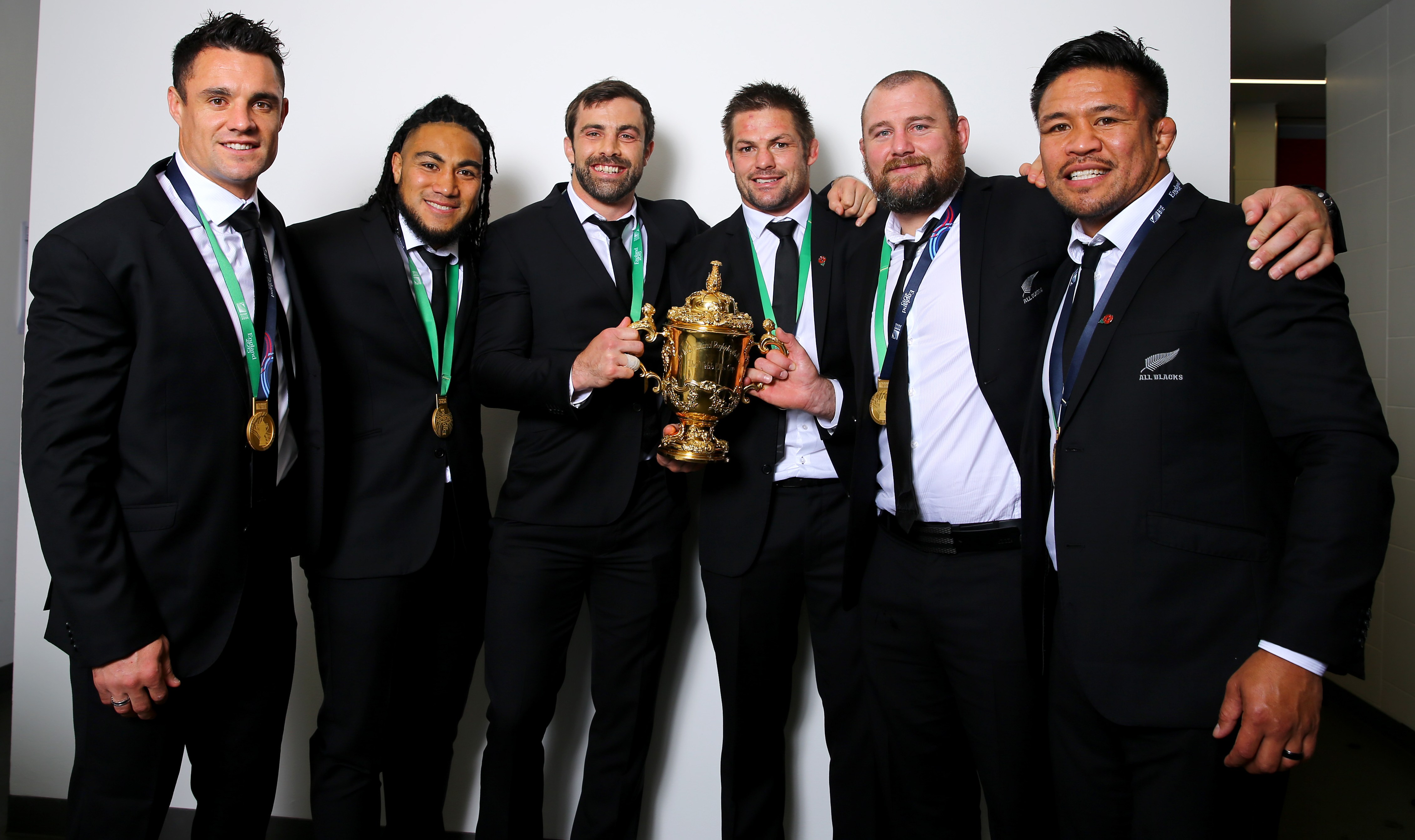
Smith, third from left, says New Zealand’s initial underperformance in World Cups “bugged him”
RICHARD HEATHCOTE/GETTY/WORLD RUGBY
Read disagrees with the idea that, such was their talent, the All Blacks of his era would have won regardless of their culture. But clearly having a bunch of all-timers coming through at once helped. Read says he constantly raised his own standards to compete with, or be better than, McCaw.
The manner of their 8-7 win against France in the 2011 World Cup final annoyed the All Blacks for years. They wanted to win the 2015 tournament in style to make up for it. It became their aim: to be the most dominant team in the history of sport, and to do it with panache.
“We weren’t exactly proud of the performance in 2011 — a lot felt we shouldn’t have won that game, and I’m one of them,” Smith, 44, says.
Read adds: “Winning the 2015 World Cup was the aim, but we wanted to play well. The style of it was probably more important to us.”
The All Blacks did deliver in style a decade ago, but after that the slow creep started. That can provide lessons for today’s South Africans.
New Zealand’s invincibility cloak took a while to slide off, but it did when the British & Irish Lions beat them in Wellington in 2017, and drew that series.
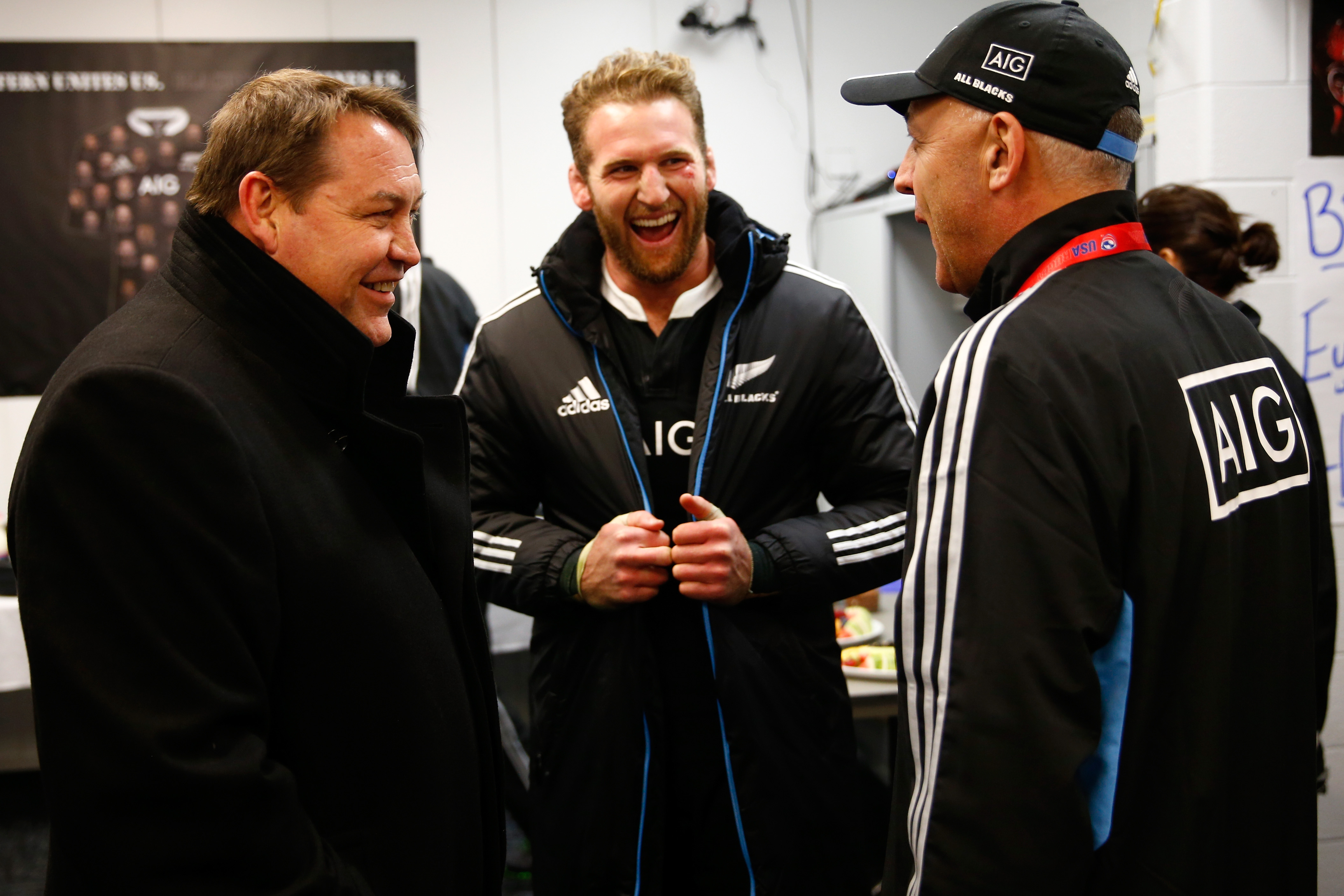
Head coach Steve Hansen, left, Read and Enoka formed a dream leadership team during the golden era
PHIL WALTER/GETTY
By 2019 it was England who took them, 19-7 in the World Cup semi-final. Read now thinks New Zealand’s constant successes became unhelpful. That was his first and only World Cup defeat in 16 matches over three tournaments. Sam Whitelock, Beauden Barrett, Brodie Retallick, Ardie Savea and Aaron Smith were in a similar boat.
“Going through heartache and adversity always makes you stronger. That 2019 team, across the board pretty much no one had had any adversity,” he says. “In 2015 we had guys who had lost World Cups — and, for New Zealanders, if you don’t win the World Cup, it’s lost. They had been to 2003, 2007 and played in 2011 and 2015. In 2019 a lot of us had never had an unsuccessful World Cup, or had even lost a game at one.
“Sometimes it just comes down to how much you put into it, and how much it really means. In 2019 we beat South Africa well in the pool, and that put us against England, who had the best day in their history, and that’s our World Cup done.
“I thought that we might have won in 2023 because of losing in 2019, and they went so close [losing the final to South Africa 12-11]. That’s World Cups, it’s never that if you’re just the best team you turn up and do it.”
These All Blacks can be a little dismissive of Rassie Erasmus’s team, who are trying to better them — suggesting that a 72 per cent win rate between 2019 and 2023 is not comparable with theirs.
“If you look at pure numbers, is it just on World Cups?” Read asks. “South Africa play for World Cups, and don’t necessarily mind if they lose a game here or there. That’s their culture. If the All Blacks lose any game, it’s not good.”
Yet many think the best Boks are yet to come. They certainly get sterner tests from France and Ireland now than the 2011-15 Kiwis ever did. Maybe, too, the fact that they do lose will help them learn and regenerate, as the All Blacks slowly failed to do between 2015 and 2023. “In the big moments they truly believe in themselves,” Read says of South Africa.
“That is just pure confidence, and the difference between the great sides and the ones that are not. South Africa have it at the moment, Ireland have had it in previous years, but maybe less so now, and France are at that stage a bit.
“They back themselves to win no matter what stage of the game they’re at. The All Blacks aren’t there at the moment. They’ve got to win some close games to find it.
“It’s going to be tough for South Africa, but sometimes you have that muscle memory and know how to win when you turn up. But anyone can come in and change the way the game is played.”
The New Zealanders certainly did that, a decade ago.
Ireland v New Zealand
Autumn internationals, Soldier Field, Chicago
Saturday, 8.10pm
TV TNT Sports 2/Discovery+

